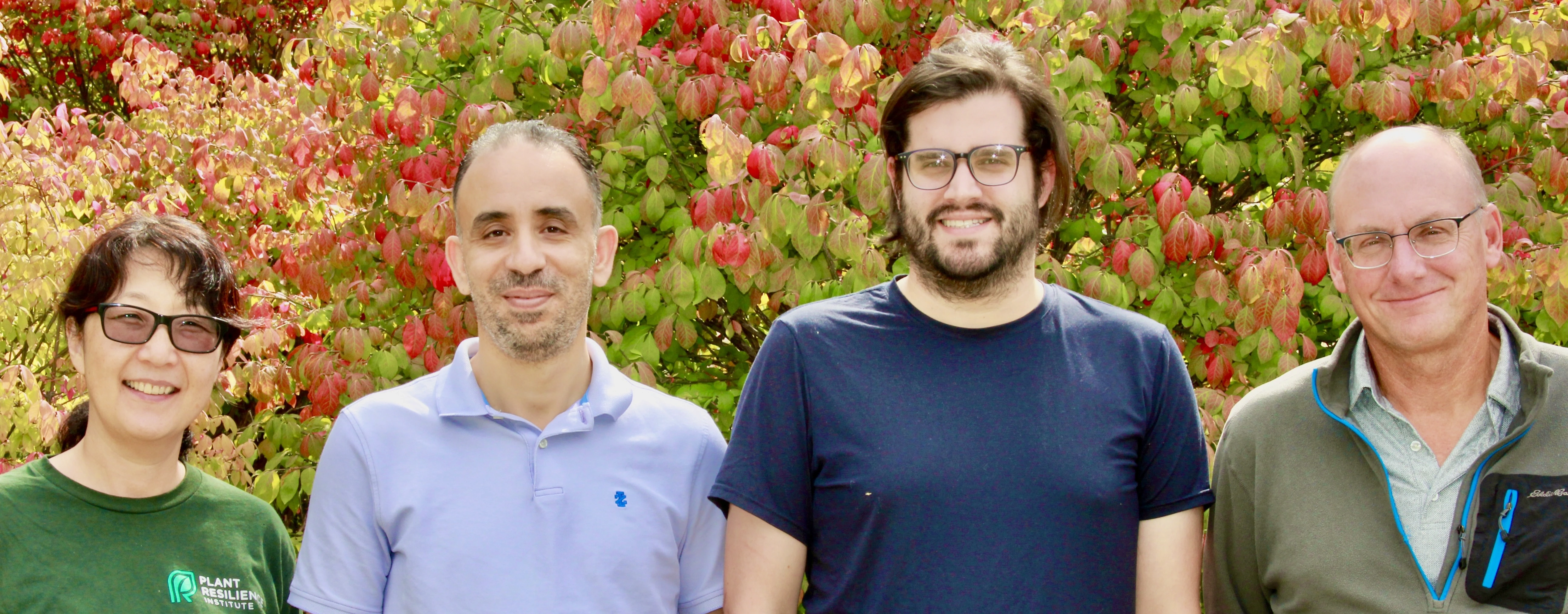Michigan State University has been awarded one of six Global Centers through the U.S. National Science Foundation and its partner agencies in the U.S., Canada, Finland, Japan, the Republic of Korea or ROK and the United Kingdom. The funding awards were announced today totaling nearly $82 million in the Global Centers competition.
“MSU’s International Research Center provides a unique opportunity to connect researchers across several continents to solve global food challenges,” said Seung Yon “Sue” Rhee, a Michigan State University Research Foundation Professor in the College of Natural Science and director of MSU’s Plant Resilience Institute.

The 2024 Global Centers award focus on advancing bioeconomy research to solve global challenges, whether by increasing crop resilience, converting plant matter or other biomass into fuel, or paving the way for biofoundries to scale-up applications of biotechnology for societal benefit. The program supports holistic, multidisciplinary projects that bring together international teams and scientific disciplines, including education and social sciences, necessary to achieve use-inspired outcomes. All Global Centers will integrate public engagement and workforce development, paying close attention to impacts on communities.
“Global Centers are leveraging expertise and resources across like-minded nations and uniting multidisciplinary teams from around the world to accelerate innovations in the bioeconomy for great impact,” said NSF Director Sethuraman Panchanathan.
“Together, we are forging new solutions to pressing socioeconomic challenges impacting all of us. These international centers of research excellence will generate crucial knowledge, empower communities and strengthen the foundations of global cooperation.”
In addition to MSU’s International Research Center for Enhancing Plant Resilience, the five other new centers are the CIRCLE Center for Innovative Recycling and Circular Economy, the Global Center for Sustainable Bioproducts, Alliance for Socially-acceptable and Actionable Plants, the center for Reliable and Scalable Biofoundries for Biomanufacturing and Global Bioeconomy and the International Bioeconomy Macroalgae Center.
Partner agencies include the National Endowment for the Humanities in the U.S.; the Natural Sciences and Engineering Research Council, or NSERC, and Social Sciences and Humanities Research Council, or SSHRC, of Canada; the Research Council of Finland, or RCF, and Innovation Funding Agency Business Finland; the Japan Science and Technology Agency, or JST; the ROK Ministry of Science and ICT and the National Research Foundation of Korea; and UK Research and Innovation, or UKRI.
“The joint Bioeconomy funding call is a response to global challenges resolvable only with international scientific cooperation. The Research Council of Finland is proud to be part of this highly impactful multilateral research funding cooperation for the best of our planet and its citizens,” said RCF President Paula Eerola.
South Korea’s Minister of Science and ICT Yoo Sang-im touted the nation’s participation in the NSF Global Centers program for the first time, “The Korean government is expanding its support for global research to foster continued collaboration and connections. We look forward to seeing the joint efforts of Biofoundry and Bioeconomy produce remarkable results over the next five years.”
Calling the Global Centers program “a groundbreaking initiative,” JST President Hashimoto Kazuhito noted how Japan would help to “strengthen global bioeconomy research capabilities and develop talent through endeavors such as the establishment of biofoundries . . . We eagerly look forward to the future breakthroughs these efforts will bring.”
“NSF Global Centers stand as beacons of collaboration and excellence, empowering researchers to address complex challenges with transformative results,” said Canada’s SSHRC President Ted Hewitt, highlighting the inspiring efforts of the researchers. “With our partners, we can better work together and find solutions to societal issues that will help create a more sustainable future for society.”
Canada’s NSERC President Alejandro Adem agrees, noting the value of developing “major advancements in food security, plastics and waste management, and the circular economy.” Further, he applauds the centers, which will “create and promote opportunities for students and early-career researchers to gain education and training in world-class research while enhancing diversity, equity, inclusion and accessibility.”
The Global Centers program leverages NSF’s areas of strength and advances the U.S. government’s bioeconomy executive order and the Bold Goals for U.S. Biotechnology and Biomanufacturing. The Global Centers will also capitalize on other NSF investments in biofoundries that enable researchers to rapidly design, create, test and streamline the development of tools and products to accelerate research to advance the bioeconomy.
To learn more about this international partnership, visit the NSF Global Centers webpage.